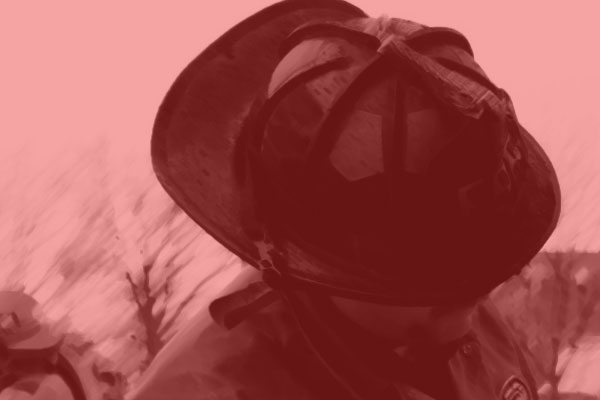

By Jeff Dill
This was the question I proposed to myself prior to offering a survey through our Facebook page. For a two-week period, Firefighter Behavioral Health Alliance (FBHA) opened a survey to fire and EMS members on the issue of morale within their organization. The survey was just three questions, but we asked for recommendations on how their organization could improve morale amongst their members.
Numerous firefighters and EMS personnel I have spoken are suffering in their job because of low morale in their own organizations, which prompted us to conduct this survey.
What is morale? According to Merriam-Webster, it is the mental and emotional condition (as of enthusiasm, confidence, or loyalty) of an individual or group with regard to the function or tasks at hand (b): a sense of common purpose with respect to a group: esprit de corps. These similarities can be found in our fire and EMS organization, which we commonly call the “brotherhood” or “sisterhood.” So why do some organizations suffer from such low levels of morale? The typical answer is that management has no understanding or concern about its employees. We found this to be true from the 279 responses we received from our survey, but what surprised us the most was the second most frequent answer, which fell short by two reports from being the number one reason!
After reading and totaling all the comments, FBHA found the number-one recommendation for improved morale was based on management’s inability to communicate any concerns for his or her employees. Survey responses believed morale would improve if management would work towards unity, and if they didn’t there needed to be a change. The survey found that the second most recommended change needed to come from the employees themselves. Responses were very similar to ones like this response: “Stop the gossip and rumors behind other firefighters’ backs…. They are supposed to be your brothers…” A very direct answer, which I liked, was “The biggest issues I’ve noticed which affect morale at my service are certain individuals’ immaturity when it comes to getting along with others, and the age old adage of the more experienced providers ‘eating their young.’ There seems to be the general attitude amongst some (not all) that those with lesser experience are lesser humans and deserve to be treated as such. If people could learn to have a mutual respect for one another, be supportive of each other, and treat each other as the family we claim to be, that would certainly be a good start at boosting morale!” Recommendation after recommendation stated they wanted more unity among the ranks and to be there for each other. Many responses stated they would be afraid to approach any of their members for in fear they would be mocked for their feelings on issues in their lives.
So does low morale lead to behavioral health issues? Absolutely! Low morale can possibly lead to anger issues, workplace violence, stress, depression, and a lack of self-worth. We know anger is in our workplace–we live with each other for 24 hours and sometimes personalities clash. Our goal in the fire and EMS service should be training on how to deal with anger in a civil manner. Anger management classes can be a positive training for our way of life.
Some members reported that the stress of going to work is almost unbearable for them. They love the job, but being harassed, mocked, or treated poorly outweighs the love of the job. Sometimes it is easier to pick on someone else rather than face one’s own personal issues. The bigger question is “Can these incidents lead a member to take their own lives?” The answer to this is yes, and it already has happened, several times, based on our tracking and validating of firefighter and EMT suicides. So when we say we are a brotherhood or sisterhood and “we got your back,” then we need to ensure this occurs not only on the fireground but in life as well!
Our recommendations for better morale in the fire and EMS are simple steps and can be instituted instantly.
Management
- Praise the successes that happen in the workplace.
- Empower your members by giving them responsibilities around the station (special team leaders, maintenance, station repairs, etc…)
- Give lots of recognition, appreciation, and positive feedback. Things such as an employee of the month or a wall of excellence can go a long ways.
Members
- Hold company-building games and exercises. If allowed, have you seen videos of firefighters playing dodge ball in full gear and SCBA?
- Host a monthly potluck or lunch for shift members.
- Schedule activities for the shift, including family members, outside of work, such as picnics, bowling, etc.
- Lead by having an upbeat and positive attitude for others to be inspired.
Morale is an issue for many companies, both in and out of the business world. Yet there is no greater job than being a firefighter or EMT. Our job is tough enough with all the tragedy we see. So many of our brothers and sisters suffer from addictions, stress, anxiety, depression, PTSD, and even have suicidal ideations. Some of these we deal withon a daily basis due to the nature of the job. We can’t change what happens in the world, but morale in an organization can be the difference on this issue. This is within our control. Will your organization accept and institute these changes?
Mental Health Crisis: Have You Preplanned?
Firefighter Behavioral Health Alliance Holds First Annual Retreat
Experts: Stress has Heavy Impact on Firefighters
IL Non-Profit FBHA Shines Spotlight on Firefighter Suicide Prevention
 Jeff Dill is a captain at Palatine Rural Fire Protection District in Inverness, Illinois, and founder of the Firefighter Behavioral Health Alliance (FBHA). FBHA was established in 2011 to educate firefighters and fire officers on suicide awareness and prevention. He travels the country discussing the data collected on the number of firefighters and EMS personnel who tragically have taken their lives.
Jeff Dill is a captain at Palatine Rural Fire Protection District in Inverness, Illinois, and founder of the Firefighter Behavioral Health Alliance (FBHA). FBHA was established in 2011 to educate firefighters and fire officers on suicide awareness and prevention. He travels the country discussing the data collected on the number of firefighters and EMS personnel who tragically have taken their lives.

